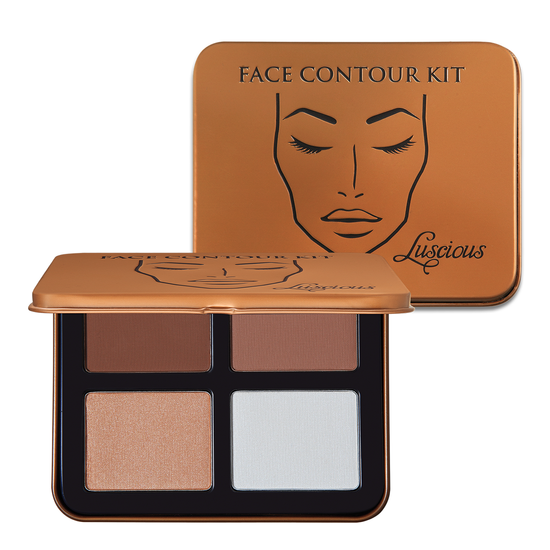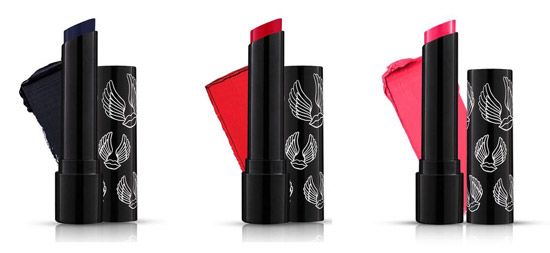Luscious Cosmetics Creates Makeup Shades for All Women
Alum Mehrbano Sethi founded the global brand

Mehrbano Sethi (CAS’00) founded Luscious Cosmetics, a vegan and cruelty-free makeup line that stands up to hot, humid climates.
- Mehrbano Sethi (CAS’00) launched Luscious Cosmetics in 2007
- The brand sells in 11 countries, entering the United States last summer
- Products are affordable and designed for a wide variety of skin tones
As a BU undergrad, Mehrbano Sethi would search the shelves of the Comm Ave CVS to find a foundation to match her olive skin tone. She never did, so the native of Pakistan made her own makeup by mixing different hues together. Soon, friends who were Irish-American, African American, Sri Lankan, Japanese, and Jordanian started asking her to mix custom shades for them too.
“We just couldn’t find shades to match our skin tones,” Sethi (CAS’00) says. “The inclusivity of the color range would end at light-medium beige. There were only six shades of foundation you could choose from.”
At the time, makeup was an interesting hobby for Sethi, who was planning on graduate study and a career at the United Nations. Those plans changed when her mother died of breast cancer, and she went into a deep depression. It was her father who pulled her out, reminding her how disappointed her mother would be if she didn’t pursue something that she was passionate about. That resonated with Sethi, and she considered her options and remembered how happy she’d felt helping her friends find makeup suitable for them. So she started to do some research.
“I think it was something that just felt right,” she says.
Sethi launched her beauty line, Luscious Cosmetics, online in 2007. Today the brand sells its lipsticks, bronzers, eyeshadows, and more in 11 countries, mostly in the Middle East, and entered the United States in August 2017. Global sales for the 2016–2017 fiscal year were $4.5 million, up from $3.5 million the year before. The company now has offices in Los Angeles, Dubai, and Lahore, and a workforce of 500, mostly based in Lahore.
Fashion magazine Allure has described Luscious as “Dubai’s cult favorite makeup brand,” and the company has caught the eye of top beauty influencers and received favorable reviews from Instagram stars like Isabel Bedoya (who has 2.6 million followers) and Hailie Barber (361,000 followers).
Today, an increasing number of makeup lines (MAC Cosmetics, Iman Cosmetics, Laura Mercier) are making an effort to be more inclusive, designing products with stronger pigments, which show up better on women with darker skin, as well as products with various undertones, textures, and finishes.

The brand’s affordability (the face contour kit sells for $24, and the Brow Luxe Designer Pencil is $9), and the fact that it’s designed to be long-lasting to withstand the Middle East’s hot climate, sets it apart from competitors. Halal consumers in the Middle East don’t want animal ingredients in anything they buy, so it’s also vegan and cruelty-free.
The Luscious line of products arrived in the right place at the right time. The higher end makeup industry has enjoyed almost 5 percent annual growth and the increase is concentrated in fast-growing regions of the Middle East and Africa (10.5 percent), East Asia (10 percent), and Eastern Europe (5.1 percent), areas where Luscious Cosmetics does much of its business.
New products: “kind of like the search for a unicorn”
In the beginning, at least, Sethi had little competition. When she started Luscious Cosmetics, she says, there were virtually no Pakistani beauty brands. She initially thought she wanted to become a brand distributor, but in the early 2000s, none of the major brands were interested in entering the Pakistani market. Today, she says, it’s a different story: half of the country’s 218 million people are under the age of 30, and a beauty-conscious middle class is on the rise.
Once she decided to create her own brand, she called manufacturers in Italy, Asia, and the United States, but no one was interested in working with her. Finally, she found a manufacturer in Taiwan to produce the formulas she had concocted with a cosmetic chemist in Los Angeles.
Now a decade in, Sethi stays involved in every stage of product development, and she makes a point of not reading industry trend reports to avoid falling in line with the pack. “You end up making something that everyone else makes,” she says. “Everything had millennial pink packaging last year—Fenty Beauty by Rihanna, Kim Kardashian West’s line, Maybelline’s collaboration with Gigi Hadid. And being an independent beauty brand, the one essential thing is that you’ve got to stand out.”

She says it takes about six months to launch a new product from inception to release. And new products can go through six or seven iterations. For instance, Luscious is currently developing a liquid lipstick, although its competitors have sold liquid lipstick for the past two years. “We’ve been rejecting the formulas because we wanted to add a plumping and long-lasting claim, while not drying your lips,” she says. “The first three or four versions were disasters. It’s kind of like the search for a unicorn.” When the line finally launches this summer, it will have taken more than a year to get to market. “Bigger brands are not able to do that, because they have to release it before or at the same time as their competitors,” Sethi says. “We have a little more leeway.”
The company hires local women in the Middle East, with jobs that offer health insurance. “We train them, so even if they leave us they have the skills to be able to do makeup and sell anything,” Sethi says. “The job creation aspect is something that really keeps me going, even in my darkest days when I’m in a new market, working 24/7.”
She’s encouraged by the company’s progress and by seeing new customers place a second order for more products within a month. “It’s an uphill slope because now there is just so much competition,” she says. “This summer, fingers crossed, we’re going big-box retail, so you’ll start seeing us in brick-and-mortar stores. It’s a great feeling.”

Comments & Discussion
Boston University moderates comments to facilitate an informed, substantive, civil conversation. Abusive, profane, self-promotional, misleading, incoherent or off-topic comments will be rejected. Moderators are staffed during regular business hours (EST) and can only accept comments written in English. Statistics or facts must include a citation or a link to the citation.